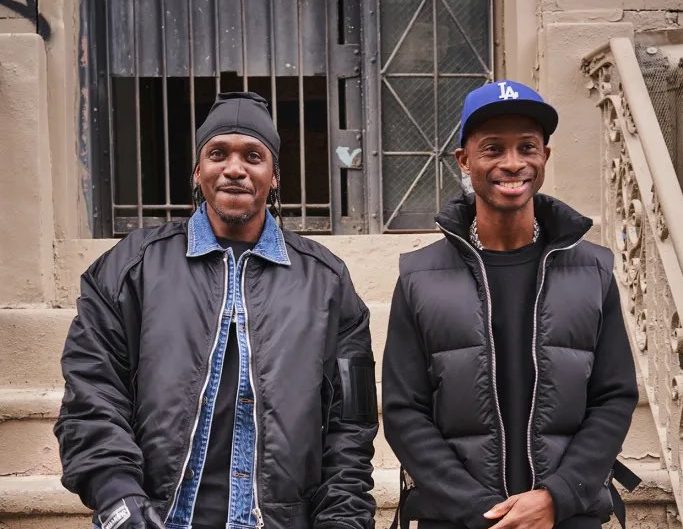
Pusha T & Clipse Paid Seven Figures to Exit Def Jam Deal
 54
54  55
55 Yesterday, Pusha T dropped the bomb that Clipse departed from Def Jam because they wanted to censor a Kendrick Lamar verse or completely remove it.
“They wanted me to ask Kendrick to censor his verse, which of course I was never doing,” Pusha T told GQ. “And then they wanted me to take the record off [the album].”
Today, his manager Steven Victor has provided more details into what went down behind the scenes, to Billboard. “If you’re an artist, your whole life is to create art and put it out,” Victor says. “If someone’s telling you that you can’t do that, or you have to do it within the confines of whatever box they put you in, that’s like creative jail.”
He discussed that UMG has this department where they review lyrics “so it was that department. The real reason [that department] is there is to protect the artists and the label from lawsuits for copyright infringement. They do it for all the labels. Some labels adhere to it closer than others. Let’s say you interpolate somebody else’s song. [That department] is there to make sure that the song is properly cleared. It’s not meant to be like, “You said XYZ about XYZ artist, so we’re not going to release this music.”
“I don’t know what their concern is. But they were like, “There’s a line here; we think it’s controversial; [Kendrick] needs to change it, or we’re not putting it out.” We’re not going to ask him to change the verse. You guys are wrong. Stop looking at this this way. None of this makes any sense,” said Steven.
“Every time he puts out an album or a song, you can’t listen to it to make sure that he’s not dissing somebody before you put it out. He has to think about what he’s saying before he’s saying it in the hopes that you might not think that he’s saying the wrong thing? Who could live their life like that?”
“I went to them and I said, “Let us put the song out somewhere else since you guys have an issue with it. You guys won’t have to stand behind whatever complications come from it. We’ll put the song out somewhere else, and we’ll license it back to you guys when the album comes out.” Their response was, “How about you just find somewhere else to put out Clipse? Just pay something to us and put it out somewhere else,” Steven revealed.
“My thing was, we can’t do that — Pusha and the Clipse are one thing. [At this point], he clearly doesn’t trust you guys. You guys haven’t been good stewards of his career. So they said, “Find another deal, and let’s figure out a business.” They didn’t drop us. They were like, “Pay us this money” — which was an exorbitant amount of money, a s—t ton of money — “and we’ll let you out the deal.” That’s what happened. We paid them the money, an insane amount of money. It wasn’t, like, $200,000. It was a lot of money for an artist to come up with. They bought themselves out of the deal.”
Steven further revealed that Pusha had 3 solo albums left as part of the deal which they quickly got out of and simultaneously initiated a conversation with Jay-Z to distribute through Roc Nation. Pusha/Clipse also had agree to a share of profit from the new deal.
“Can we pay you this amount of money and a part of the profit? Can we figure out a deal where we pay you as the guys make money from the new release, instead of coming up with this large sum of money [right now]?” They said no. They were like, “We want our money, and we want some of the profits.”
“Look, this is what’s happening. We’ve been talking about doing X, Y, Z, together. There’s an opportunity here to do this album. What do you think?”
He hit me back right away, like, “You just made my day. Let’s figure it out. What do we need to get it done?” I went back to Pusha, and said, “Listen, Jay’s gonna give us a very artist-friendly deal, we get to own the masters, and they’ll put the marketing power of Roc Nation behind it. You guys are friends. It’s a great outcome.” We worked out the deal in less than 24 hours.”
“Pusha is having way more success creatively, financially and professionally, than he did at the peak of his career, which was when [Clipse’s] “Grindin’” came out. Smart and steady wins the race,” he signs off.


